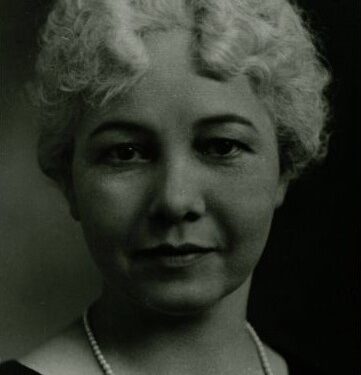LANSING, Mich. (WZMQ) – Cora Bell Reynolds was born on April 10th, 1882 in L’Anse, Michigan. She would later become the first woman and identified Native American to serve in the Michigan State House of Representatives.
Valerie Marvin, Historian and Curator with the Michigan State Capitol, called Anderson a Bridge maker. Marvin said that Anderson connected Indigenous and U.P. communities to the state government. As an English, French-Canadian, and Native woman, Cora Reynolds Anderson represented several populations not present in Lansing at the time.
“Any legislator has kind of a foot in life back home where their district is, and then they have a foot in Lansing. But it’s building that bridge between the two places, and she was building several bridges because there’s not only the geographic divide but there’s also the cultural differences.” Marvin said. “We know she was unusual right from the start because she pursued higher education as well.”
After graduating from high school, just one of two graduates in her class, Reynolds Anderson attended the Haskell Indian Institute, now known as the Haskell Indian Nations University, in Lawrence, Kansas where she earned a degree in education and returned to L’Anse to teach.
“Documents from her time period show her as a member of what was then identified as the Chippewa tribe,” Marvin explained. “Today she would be if she was still living, a part of the L’Anse band of the Ojibwa tribe.”
Anderson and her husband were both active members of their communities. The two ran the Thomas Inn for a period of time and later became involved in the prohibition movement.
By the time she ran for office, Anderson was already well-known in her community as an educator and health advocate.
Anderson was asked to run by her predecessor and won the primary against two other republican candidates, then ran unopposed for the final election, taking office in 1925.
She represented what was known as the “Iron District” of Baraga, Iron, Keweenaw, and Ontonagon Counties. While in office, Anderson was appointed the chair of the committee overseeing the Industrial Home for Girls and sat on the committees for agriculture, insurance, and the Northern State Normal School, now known as Northern Michigan University.
Anderson worked to expand higher ed in the U.P., wrote and passed legislation to strengthen tribal fishing rights, and established the first visiting nurse service in Baraga County. She then attempted to run again in 1926 and was unsuccessful because of redistricting in her area.
Anderson passed away at 68. She has since been honored by the Michigan Women’s Hall of Fame, and the House Office building in Lansing has been dedicated to, and named after her.










